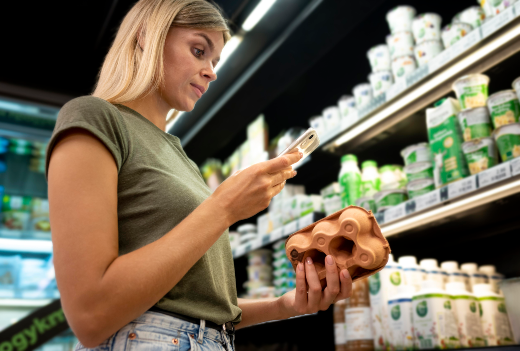July and August have seen a startling acceleration in grocery safety alerts—not minor slips, but high-profile recall actions involving Lidl, Waitrose, Aldi, Dollar General, Wegmans and others. With real figures, verified batch codes and firm dates, this wave is reshaping trust among shoppers, suppliers and retailers.
Hash Browns With Metal Fragments: Lidl GB Recall Raises Consumer Safety Flags
On 12 June 2025, Lidl GB issued an urgent recall of its Harvest Basket Hash Browns (750 g, batch code 5144L, best‑before 24 May 2027) after metal fragments were found—posing a choking hazard. Point‑of‑sale notices were deployed across England, Scotland and Wales, with the FSA instructing customers to return the product for a full refund.
Why it matters: For price-sensitive shoppers, this undermines confidence in the reliability of discount frozen-food categories—a core strength for Lidl. Retailers must invest in suppliers’ QC and traceability to avoid undermining hard-won price trust.
Egg & Spinach Protein Pot Recall: Waitrose Responds to Salmonella Risk
On 29 July 2025, Waitrose recalled its 90 g Egg & Spinach Protein Pot (use‑by: 31 July and 1 August 2025) after possible Salmonella contamination. The FSA issued a Product Recall Information Notice; in‑store notices directed customers to return the product for full refund. Symptoms—fever, diarrhoea, abdominal cramps—prompted the usual 48‑hour exclusion advice for anyone affected.
Why retailers feel the heat: In high-margin chilled segments, health safety failures can break customer loyalty. For suppliers, this reinforces the importance of routine bacteriological screening and hygiene audits.
Gyoza Recall Down Under: Aldi Warned of Glass Contamination
In Australia on 28 July 2025, Aldi recalled Urban Eats Japanese‑Style Vegetable Gyoza 750 g (best‑before 27 March 2027) across six states and territories (NSW, ACT, VIC, QLD, SA, WA) due to possible glass fragments, as flagged by FSANZ. Consumers were advised to return products for refunds and seek medical advice if concerned.
Why it matters: Even overseas recalls impact brand perception globally. Suppliers exporting to multiple markets must meet all local packaging and safety standards—no compromises.
US Recall Blitz: Cheese, Coffee, Cookies Hit by Listeria, Glass, Wooden Debris
August’s US recall list includes:

- Wegmans: On or around 12 August 2025, Wegmans recalled four soft‑cheese products (e.g., Medium Camembert, Brie variants) sold between 1 July and 12 August 2025, over possible Listeria monocytogenes contamination. Affected states include CT, DE, MD, MA, NJ, NY, NC, PA, VA and DC.

- Dollar General: On 11–12 August 2025, the FDA announced a recall of Clover Valley® Instant Coffee (8‑oz jars, UPC 876941004069; lots L‑5163/64/65; best‑by 13/14 Dec 2026) sold 9–21 July in 48 continental states due to glass contamination risk.
- Additional alerts include Parks Street Deli’s Cinnamon Bun Dessert Dip recalled for plastic fragments; Target’s sugar cookies for possible wood contamination—these issues compound the perception of systemic safety gaps.
Why this matters: In a fragmented regulatory landscape, recalls driven by both physical hazards (glass, metal, wood) and biological risks (Listeria, Salmonella) underscore vulnerability across categories. For supermarkets and brands, this means a renewed focus on QA across entire supply chains.
GSN Analysis
- Recalls are no longer one-off PR crises; they’ve become a competitive battleground. Retailers that respond swiftly and transparently safeguard shopper trust; those that delay or obfuscate risk lasting reputational scars.
- Real-time recall visibility through social media raises stakes exponentially. Retailers must have not just product trackability, but rapid communication protocols—across shelf, social, loyalty channels—to manage consumer anxiety and media scrutiny.
Related GSN Coverage
- Lidl GB recalls hash browns over metal contamination
- ALDI gyoza glass recall explained
- Waitrose egg-spinach pot recall over Salmonella
- UK/Ireland food recall roundup August 2025
Looking Ahead: Christmas Supply-Chain Vigilance Must Tighten
As retailers move into the pivotal Q4 holiday season, vigilance must shift into high gear. With consumer expectations more unforgiving than ever, one more lapse—especially in festive, high-consumption categories (cheese boards, frozen sides, baking mixes)—can inflict disproportionate damage. Supermarkets must sharpen end-to-end quality controls, empower frontline staff with recall response playbooks, and signal transparency to reassure shoppers. Quality leadership, not just price leadership, will decide winners this cycle.



